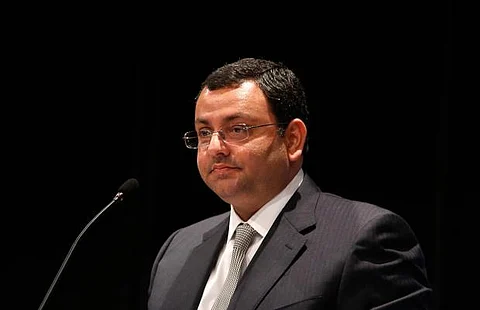

10 years back when Ratan Tata stepped out from the boots of the TATA Sons Chairperson a post which he held since 1991 chose Cyrus Mistry as his successor who was at that time the board member of India’s iconic business group.
Cyrus’s inclusion in the TATA’s board was by the virtue of his father Pallonji Mistry’s exit who held 18.4% of the TATA’s stake.
The story of Mistry’s exit as many say indirectly is associated with a business deal that TATA underwent with NTT DoCoMo. The alliance didn’t last well and long and the Japanese entity took an exit in 2014 and filed an arbitration case.
It was reported then that Ratan Tata was not happy with the manner in which the matter was dragged to the court which even cost TATA a whopping $1.2 billion payout.
Mistry was the chairperson when the event unfolded and inherited these losses besides taking his own way to fix it up. But it was not how the TATA dealt with the issues and the case didn’t go well with the former TATA boss.
Mistry, in fact, had made a number of asset sales during his tenure to bring down the debt burden. In 2014, Tata Power sold a 30% stake in its coal mine in Indonesia for Rs 3,100 crore.
In April 2016, Tata Chemicals sold its urea plant in Uttar Pradesh to a Norwegian company for Rs 2,600 crore. In May, Tata Communications sold the majority stake in a data center it owned. In June, Tata sold Neotel, a telecom company it owned in South Africa, for Rs 3,000 crore.
At the time an argument was on about the manner in which things proceeded and that what Mistry sold, was one big purchase that sealed his fate.
In June 2016, he finalized Tata Power's acquisition of Welspun's solar farms for $1.4 billion. It was said to be without the approval of Ratan Tata and other key shareholders. And, that was not how business had been done at Bombay House.
It didn’t take much longer to figure out that Ratan Tata was not happy with the way Cyrus dealt with the scenario in the company and the decision to remove Mistry was anything but sudden.
A major discontent that came to the fore was the induction of Ajay Piramal of Piramal Enterprises and Venu Srinivasan of TVS into the TATA Sons board. A development that was out of Mistry’s knowledge, who was chairing the board.
With about 66% stake, Tata Trusts (Sir Dorabji Tata Trust and the allied trusts, and Sir Ratan Tata Trust and Navajbai Ratan Tata Trust) control Tata Sons, the holding entity of the companies in the Tata Empire. Ratan Tata is the chairman of the trusts.
Cyrus Mistry's father, Pallonji Mistry, owns 18.4%. He inherited 12.4% from his father, Shapoorji Pallonji, and the rest through rights issues.
But was this the only reason behind Cyrus’s ouster and could it have been averted?
As per the reports that were in the media than said a graceful exit option was offered to Mistry. He was asked to step down, but he did not. It seems Mistry was keen on facing the board.
The board had nine members, including Tata and Mistry. Six of the members who voted in the proceedings are said to have voted for removing Mistry and two abstained.
Soon after the board’s decision Mistry took a legal course. In a letter written on October 25th, Mistry criticized the decision to remove and alleged he had not been given the freedom to run the conglomerate.
Interestingly, Mistry's attempts to micro-manage the companies in the group were one thing that the directors and Ratan Tata were not comfortable with. They wanted the chairman to be a grand visionary, rather than someone who nitpicks over tiny details.
As many reports in the media say that the trusts were not in sync with the manner how of the high-profile Group Executive Council that Mistry set up with the intention of centralizing the group's management.
However, despite being involved in criticism and controversies Cyrus’s few steps were too crucial for the financial well-being of the group. According to an analysis by Edelweiss Capital, Mistry's focus on the sale of assets that either was not profitable or were creating little shareholder value was hailed by the shareholders.
Under Mistry, the net profit of TCS jumped about 75% and its stock price rose by 60%. The revenue of Tata Motors grew by over 46% under him, and its profit was up 11.4%.
The market as well seemed upset by the action of the TATA boards’ to remove their chairperson which saw in the form of a devastative fall of all its listed shares except the TATA Teleservices.
The Indian Hotels saw the worst hit with 3.16%, the same segment whose value doubled during Mistry’s tenure.
Post the removal of Mistry in the first few board meetings Ratan Tata highlighted his vision of reviewing some of his decision and will take recourse only after due deliberation from the board members.